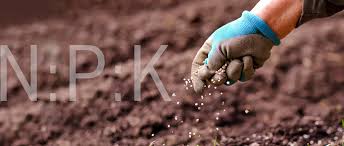
Dec . 05, 2024 14:23 Back to list
Optimal Use of Potassium Nitrate Fertilizer for Enhanced Plant Growth and Yield
The Role of Potassium Nitrate Fertilizer in Modern Agriculture
In the realm of agriculture, the quest for optimal crop yield has led to the development and utilization of various fertilizers. Among these, potassium nitrate (KNO3) is particularly significant and widely used due to its unique properties as both a nitrogen and potassium source. This article explores the importance of potassium nitrate fertilizer, its benefits, and its application in modern farming practices.
Understanding Potassium Nitrate
Potassium nitrate is a naturally occurring mineral source of nitrogen and potassium, two essential nutrients for plant growth. Nitrogen is crucial for plant development as it is a key component of amino acids, which are the building blocks of proteins. Additionally, nitrogen plays a vital role in chlorophyll formation, influencing photosynthesis and overall plant vigor. Potassium, on the other hand, is essential for various plant processes, including water regulation, enzyme activation, and the synthesis of sugars, starches, and proteins. The dual action of potassium nitrate makes it indispensable in agriculture.
Benefits of Potassium Nitrate Fertilizer
1. Promotes Healthy Plant Growth The balanced supply of nitrogen and potassium from potassium nitrate helps in robust vegetative growth and enhances root system development. This improved growth leads to higher yields and better-quality produce.
2. Enhanced Nutrient Uptake The solubility of potassium nitrate enables quick uptake by plants. This characteristic is particularly beneficial during critical growth stages when plants require immediate access to nutrients for optimum development.
3. Improved Crop Quality Potassium nitrate not only increases yield but also enhances the quality of crops. Fruits and vegetables treated with potassium nitrate often have better color, size, and flavor profiles, making them more appealing to consumers.
4. Reduction of Mineral Deficiencies The use of potassium nitrate can alleviate symptoms of nutrient deficiencies. It provides an adequate supply of both potassium and nitrogen, reducing stress on plants and mitigating deficiencies in these essential elements.
nitrate potassium fertilizer

5. Versatile Application Potassium nitrate is suitable for a wide range of crops, including fruits, vegetables, and ornamental plants. It can be applied via various methods such as foliar spraying, fertigation (applying fertilizers through irrigation), and traditional soil application, making it a flexible option for farmers.
Application of Potassium Nitrate
When applying potassium nitrate, timing and dosage are critical for maximizing its benefits. Generally, it is recommended to apply potassium nitrate during the active growing season when plants are most in need of nutrients. For crops that require a high potassium level, such as tomatoes, potatoes, and fruits, potassium nitrate can be an integral part of the nutrient management plan.
Fertigation is a popular method of application as it delivers nutrients directly to the root zone, ensuring efficient absorption and minimizing nutrient loss. Farmers must carefully calibrate their fertigation system to avoid over-application, which can lead to nutrient leaching and environmental concerns.
Environmental Considerations
While potassium nitrate has numerous benefits, its use must be balanced with environmental sustainability. Over-fertilization can lead to runoff that contaminates waterways, causing eutrophication, which depletes oxygen in aquatic environments and harms aquatic life. Therefore, integrated nutrient management practices that combine potassium nitrate with organic fertilizers and careful monitoring of soil and plant nutrient levels are essential for minimizing negative impacts.
Conclusion
In conclusion, potassium nitrate fertilizer plays a pivotal role in modern agriculture by providing essential nutrients that enhance crop growth and quality. Its versatility and effectiveness make it a favored choice among farmers. However, responsible application and adherence to sustainable agricultural practices are crucial to mitigate potential environmental impacts. As the agricultural sector continues to evolve, the prudent use of potassium nitrate will remain a vital component in the quest for sustainable food production and enhanced overall efficiency. Through the careful application of this fertilizer, farmers can ensure healthy crops while protecting the environment for future generations.
-
Premium 8 12 16 Fertilizer – High-Efficiency Compound & Granular NPK Supplier
NewsJun.10,2025
-
High Quality Agricultural Grade NPK Fertilizer Manufacturer & Supplier Reliable Factory Price
NewsJun.10,2025
-
Organic Fertilizer for Corn Boost Yield Sustainably
NewsJun.10,2025
-
Organic Fertilizer for New Plants Natural Growth Boost & Eco Nutrients
NewsJun.10,2025
-
Optimized Hydroponic NPK Fertilizer – Fast Growth & Nutrients
NewsJun.09,2025
-
Top-Rated NPK Fertilizer for Fruit Trees - Boost Growth & Yield
NewsJun.09,2025
